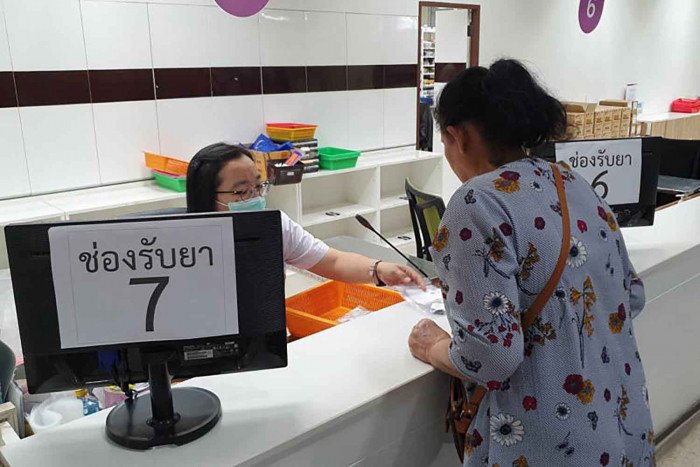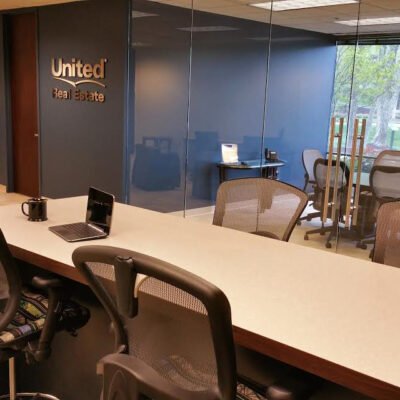Health experts say the universal healthcare policy, aka the 30-baht gold card scheme, is unlikely to provide adequate security to every citizen, suggesting the scheme be reformed for financial sustainability in the future.
The populist policy, initiated by the Pheu Thai Party over two decades ago, aims to provide equality in medical treatment for Thais, especially the poor, without financial concerns.
The programme was first launched in 2002 with the requirement of a 30-baht co-payment per visit.
However, that was removed a few years later, allowing cardholders the right to access medical treatment free of charge.
According to a network of hospitals and medical staff, the scheme has caused problems for state-owned hospitals. They are now facing increased patient visits, staff shortages and financial deficits, it said.
The group has called on the Ministry of Public Health to take action, saying the universal healthcare scheme is under threat of collapsing.
It highlighted a rise in the costs of medical treatments and an increasing number of patients with more complicated diseases.
It also noted an increasing number of senior citizens and a declining number of taxpayers in the country.
Suffering staff
Academics and medical experts agree this is the right time to reform the scheme to put it on a more financially sustainable footing.
Dr Somsak Tiankao of Khon Kaen University’s Srinagarind Hospital said the hospital runs up about 100 million baht in losses every year due to a daily overload of patients.
He said the number of patients has increased by 400%, especially after the launch of the scheme’s “cancer everywhere” policy.
The annual number of cancer patients at the hospital, which increased from 6,000 to 25,000 in a matter of years, has made it difficult for medical staff to provide proper service to every patient, he said.
More importantly, many patients reported not receiving treatment in time due to long queues, he said.
He added that many state-owned hospitals are working hard to earn extra money to offset their financial losses.
Efforts include establishing special medical clinics for out-patients and opening for public donations, he said.
Dr Somsak said his hospital may be forced to reduce its standards to cope with the limited budget, which may include limiting laboratory use as well as daily patient visits, unless remedies are put in place.
“It might happen in the next five years because we will fully have [become] an ageing society, which increases the cost of medical treatment due to more complicated diseases.
“Worst, we might have a strike of medical staff who suffer from [work] overload. The [health] ministry should exercise its authority and speak the truth and not follow the political policy that would finally destroy health security,” he said.
Dr Somsak predicts that more of the country’s budget will be allocated to the healthcare universal scheme in the future. However, he is concerned it will not address the root of the problem.
The new government should consider allowing patients under the universal healthcare scheme to pay extra, beyond the 30-baht co-pay ceiling, to help reduce the state’s financial burden, he said.
He added that medical treatment should not be free for all, and paying extra for better medical service should be allowed for those who are financially able.

Somsak: Extend user-pays
Budget boost
Dr Supat Hasuwannakit, president of the Rural Doctor Society, said the budget allocation for the universal healthcare scheme is about 7%, or about 200 billion baht, of the 3-trillion-baht fiscal budget.
The amount increases by 3% per year, but it is still not enough to maintain the scheme, he said.
The new government should consider providing emergency funds to support the scheme to reduce the financial burden at state-owned hospitals in the short term.
But in the long run, the government should investment more in community hospitals or medium-sized hospitals because they are the primary places for medical treatment for locals, he said.
If successful, it would reduce the number of patients visiting main hospitals, he said.
Dr Supat added Prime Minister Paetongtarn Shinawatra, who will chair the board of the National Health Security Office (NHSO), should upgrade the universal healthcare scheme, which is regarded as one of the party’s hallmark policies.
Moreover, the master plan for healthcare security should be designed to ensure the country meets sustainable healthcare security, he said.
Meanwhile, Nuttanan Wichitaksorn of the Thailand Development Research Institute, said many hospitals under the universal health scheme and the Social Security Fund have made complaints about huge losses stemming from a lack of government funding.
He said management of the healthcare budgets under the two schemes should be handed over to the NHSO for better management.
“I think there should be some reform to the nation’s health care scheme otherwise it will face financial instability in the future.
“The scheme cannot be abolished because it is important to give Thai people access to proper medical treatment,” he said.
“We should wait and see what the next for the scheme should be.”
The TDRI said recently that Thailand’s healthcare expenditure will reach 2.2 trillion baht by 2032 if there is no plan to promote healthy lifestyles among its people.

Supat: Focus on small providers





